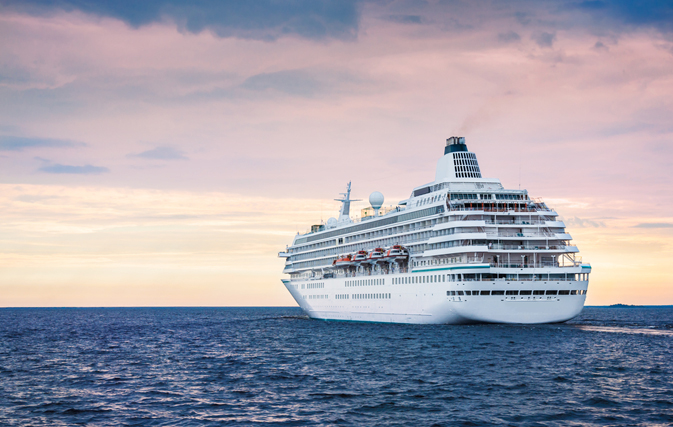TORONTO — There’s no question that 2023 will be a landmark year for the cruise industry. With no restrictions in place – no CDC-imposed health notices, cruise bans, travel warnings, colour-coded systems or mandatory test cruises – 2023 will mark the first full year of operations for the industry since the start of the pandemic, and travellers and travel agents couldn’t be more excited.
“This is the year we will return to the scale we had achieved before the pandemic, and now we can move forward building on the positive trajectory we were experiencing pre-pandemic,” says Sally Andrews, Vice President, Strategic Communications & Public Affairs at CLIA.
Noting that many cruise lines reported record wave seasons in 2023, Andrews adds that consumer confidence in cruise is back following a very challenging three years for the industry.
“CLIA’s research shows that in 2023 the industry is forecast to carry 31.5 million passengers worldwide – exceeding 2019 volume. By 2026, our forecasts show we will reach nearly 39 million passengers, or about 30% more than in 2019,” says Andrews.
“Positive consumer sentiment supports this growth. For example, CLIA’s latest international research shows that 85% of those who have cruised intend to cruise again – that’s 6% higher than in 2019. And 73% of those who have never cruised before said they are open to a cruise vacation, higher now than it was back in 2018 and 2019,” she adds.
CLIA has summarized these findings in its 2023 ‘State of the Cruise Industry’ report, which includes results from its ‘Cruise Traveler Sentiment, Perception, and Intent Survey’ conducted in December 2022. We rounded up four need-to-knows from the report:
- “GenX and Millennials are the most enthusiastic about planning a cruise holiday.”
It’s obvious: the future of cruise lies in the hands of the younger generation. The average age among cruise tourists from 2018-2022 is 46.5 years. Of the survey respondents, 33% were 60+, 32% were between 40-59 years old, 20% were 20-39, and 15% were under the age of 19. And among all age groups who said they plan to cruise again, Millennials came out on top at 88%.
“It’s really no surprise that the younger generation would be enthusiastic about cruising. They prioritize experiences and seeing the world,” says Andrews.
“Looking across the industry, there is an experience to fit everyone, and it’s not just demographics but psychographics as well. For example, a Millennial could be the kind of person seeking a more classic cruise experience, just like there are older cruisers who prefer a more vibrant onboard experience. As well as the vast range and variety of cruise experiences, there are many different price points, too,” she adds.
- “Younger generations are using travel advisors to book cruises at a higher rate than other generations.”
Among the 65% of respondents who used a travel advisor to book their cruise in the last six months, 69% were Gen Z, 68% were Gen X, and 66% were Millennials. Trailing behind were Baby Boomers at 44%.
So what does this say about the value of travel advisors? For one thing, says Andrews, it proves that travel agents play a critical role in generating future repeat cruisers, and that they’re considered experts at matching their clients to the right experience for them.
“Younger generations have at their fingertips an incredible amount of product information, pricing comparisons, reviews and ratings. They are informed and rely on recommendations from others and are savvy at – and often prefer – making purchases directly online,” says Andrews. “The fact that they are using travel agents to book their cruise vacations demonstrates the reputational credibility of agents as the experts in booking cruise travel.”
- “Many cruise lines are increasing the number of single cabins as an increasing number of cruise travellers choose to cruise solo.”
According to the report, 54.7% of solo travellers who have cruised before and plan on cruising again book 1-6 months prior to sailing, while 28.1% book 6-12 months out.
Describing cruise as one of the best ways for solos to see the world, Andrews says it’s “secure, safe and as social as you want it to be,” which is why solo travellers are a significant part of cruising’s continued growth.
“All the same attributes apply to solos as couples in terms of their desire to experience the world and enjoying all the onboard and destination experiences that cruising offers,” she says.
- “14 new ships will enter service during 2023, offering new itineraries and experiences.”
This year will be a busy one for the world’s biggest cruise lines, with over a dozen ships scheduled to make their grand debuts. These include: Carnival Cruise Line’s Jubilee (December); Celebrity’s Ascent (December); Emerald Cruises’ Sakara (August); Explora Journeys’ Explora I (July); MSC Cruises’ Euribia (June); Norwegian Cruise Line’s Viva (August); Oceania Cruises’ Vista (May); Regent Seven Seas’ Seven Seas Grandeur (November): Scenic’s Eclipse II (April); Seabourn’s Pursuit (August); Silversea’s Silver Nova (August); Swan Hellenic’s Hellenic Diana (April); and Virgin Voyages’ Brilliant Lady (December) and Resilient Lady (May).
“There is a lot to be excited about in the world’s shipyards and it’s a huge show of confidence in the future of cruise,” says Andrews. “Each ship brings new technology, new creativity in design, new innovations in the passenger experience, and new levels of sustainability advancements.”
The momentum gained in 2023 will only build in the next few years, adds Andrews, who says that looking through to 2028, the order book shows 62 new CLIA ships joining the worldwide fleet. This represents more than US$40 billion worth of investment for cruise lines.
“Attracting a new wave of first-time cruisers will be important to support the growth in capacity, and travel agents will play a significant role in this,” says Andrews. “But we are supported by a strong track record, dedicated trade partners and positive consumer sentiment so the future of the industry is incredibly bright.”

